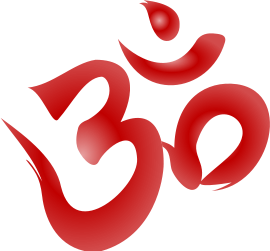 Karma and Samsara
Karma and Samsara
Karma translates literally as action, work, or deed,and also refers to a Vedic theory of "moral law of cause and effect".The theory is a combination of
(1) causality that may be ethical or non-ethical .
(2) ethicization, that is good or bad actions have consequences.
(3) rebirth.
Karma theory is interpreted as explaining the present circumstances of an individual with reference to his or her actions in past. These actions may be those in a person's current life, or, in some schools of Hinduism, possibly actions in their past lives; furthermore, the consequences may result in current life, or a person's future lives. This cycle of birth, life, death and rebirth is called samsara. Liberation from samsara through moksha is believed to ensure lasting happiness and peace.Hindu scriptures teach that the future is both a function of current human effort derived from free will and past human actions that set the circumstances.



